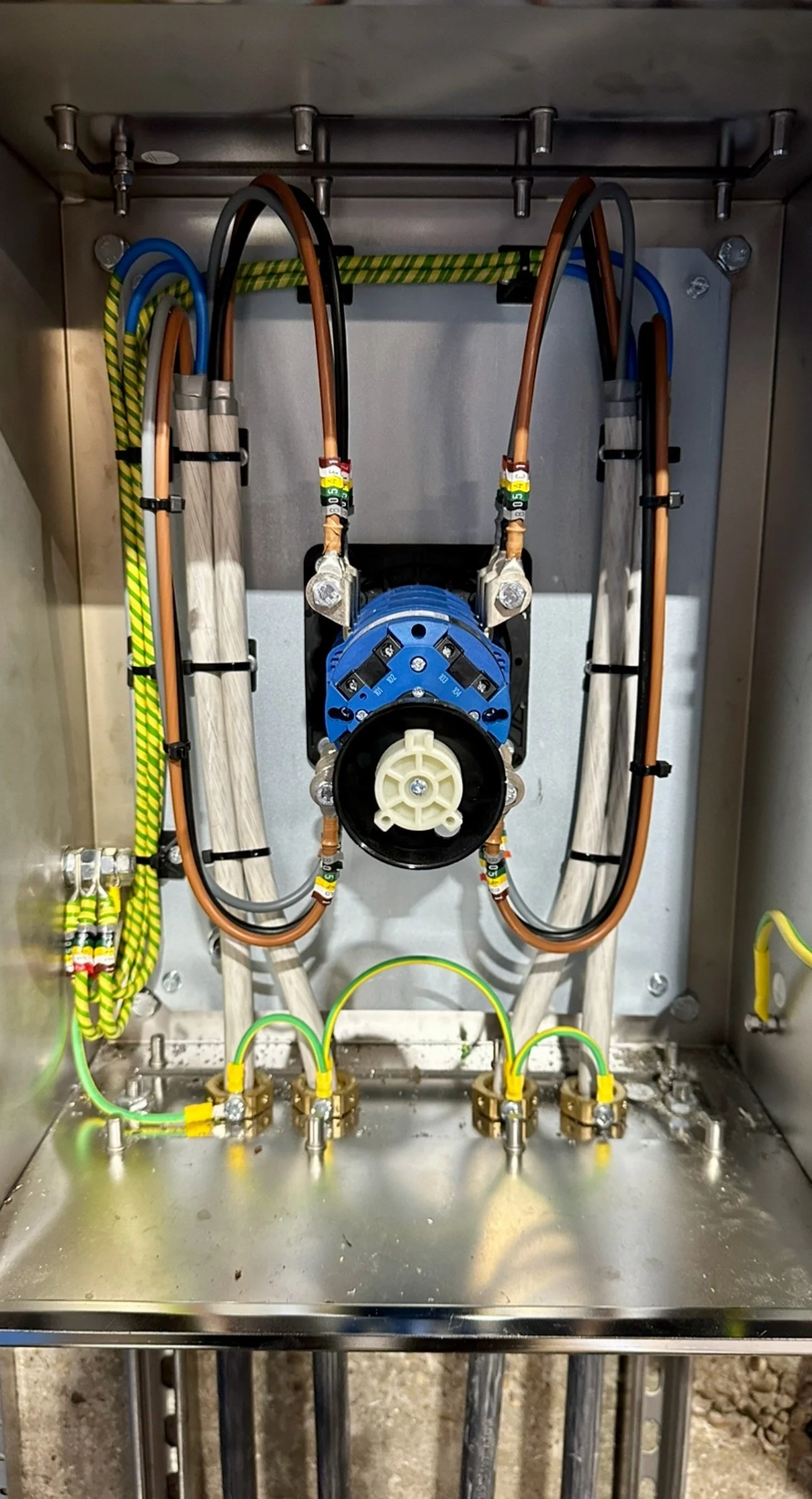Introduction
When it comes to electrical systems, many people often confuse industrial and commercial electrics. While both sectors rely heavily on electricity to operate efficiently, they serve different purposes and have distinct requirements. Understanding what sets industrial and commercial electrics apart is crucial for anyone involved in hiring electrical services or working with electricians. This article will delve deep into these two sectors, highlighting their differences, similarities, and the unique challenges each presents.
What Sets Industrial and Commercial Electrics Apart?
At the heart of the question, "What Sets Industrial and Commercial Electrics Apart?" lies the fundamental understanding of their applications and environments.
Understanding Industrial Electrical Systems
Industrial electrical systems are typically found in manufacturing plants, factories, and large-scale production facilities. These systems are designed to handle heavy machinery, high voltage equipment, and complex processes that require specialized expertise.
- High Voltage Applications: Industrial environments often work with voltages that can exceed 1,000 volts. This necessitates the need for highly skilled professionals like industrial electrical contractors who understand safety regulations. Complexity of Systems: The systems are intricate, involving automation technology like PLCs (Programmable Logic Controllers), robotics, and other advanced machinery that require precise installation and maintenance by expert electricians.
Understanding Commercial Electrical Systems
Conversely, commercial electrical systems power businesses such as offices, retail stores, restaurants, and service centers. The focus here is on reliability, efficiency, and compliance with commercial building codes.
- Lower Voltage Levels: Typically operating at lower voltage levels compared to industrial settings (often below 600 volts), commercial wiring is generally less complex but equally crucial for everyday operations. Standardization: Commercial electrical installations often adhere to standardized designs which make them more straightforward but still essential for business functionality.
Key Differences Between Industrial and Commercial Electrics
1. Application Environment
The primary difference is evident in their application environments. Industrial settings require robust systems capable of supporting heavy machinery while commercial environments focus on user-friendly installations.
2. Equipment Used
Industrial electrics use specialized equipment tailored for heavy-duty performance—think large motors or generators—while commercial electrics can utilize standard fixtures like lights and outlets.
3. Regulatory Compliance
Both sectors must adhere to local regulations; however, industrial electricians often face stricter guidelines due to the potential hazards associated with high-voltage systems.
4. Work Hours & Emergency Services
Emergency electric services cater differently to both sectors: industrial emergencies may require rapid response for costly production downtime while commercial emergencies could involve customer-facing issues like lighting failures.
Common Electrical Issues in Industrial Settings
1. Power Surges
Power surges can lead to significant equipment damage in an industrial setting. Understanding how to protect sensitive machinery is critical for industrial electrical contractors.
2. Faulty Wiring
Old or damaged wiring poses a serious risk; regular inspections by qualified electricians near me can prevent catastrophic failures.
3. Motor Failures
Motors are the lifeblood of many industrial operations; regular maintenance from independent electrical contractors can ensure smooth operations.
Common Electrical Issues in Commercial Settings
1. Circuit Overloads
In busy commercial spaces, circuit overloads are common due to high energy demands during peak hours; proper planning helps mitigate this issue.
2. Outdated Lighting Systems
Many commercial spaces still rely on outdated lighting technologies which not only waste energy but can also lead to higher operational costs—upgrading lighting should be a priority for facility managers.
3. Emergency Lighting Failures
Facilities must ensure emergency lighting remains functional; hiring local emergency electricians can provide peace of mind during unforeseen situations.

Hiring Qualified Electricians: What You Need to Know
When seeking out an electrician Melton Mowbray or anywhere else:
- Look for licensed professionals who specialize in your required field—commercial or industrial. Check reviews or testimonials from past clients to gauge reliability. Verify insurance coverage; this protects you from potential liabilities during work performed on your property.
The Role of Electrical Contractors in Each Sector
1. Industrial Electrical Contractors
These specialists focus on large-scale projects that require extensive knowledge about machinery setup, maintenance protocols, and compliance standards unique to industry regulations.
Responsibilities Include:
- Installation of high-voltage equipment Regular system audits Troubleshooting complex electrical issues
2. Commercial Electrical Contractors
They handle tasks related primarily to office buildings or retail spaces where functionality meets aesthetics—their work keeps businesses running smoothly every day!
Responsibilities Include:
- Installing lighting fixtures Upgrading existing systems Ensuring energy efficiency
FAQs
Q: What qualifications should I look for when hiring an electrician?
A: Always check if they are licensed and insured! Experience specific to your needs (commercial vs industrial) is also vital.
Q: How do I find a reliable electrician near me?
A: Online reviews combined with recommendations from friends or colleagues usually point you toward trusted professionals in your area.
Q: Are there emergency electricians available 24/7?
A: Yes! Many companies offer emergency services around-the-clock—just search for "emergency electrician" online!
Q: Is it safe to do my own electrical repairs?
A: Unless you're qualified as an electrician yourself—it’s best left to professionals! Safety first!
Q: How often should I have my electrical system inspected?
A: An annual inspection is recommended for both residential and commercial setups—but more frequently if you notice any issues!
Q: Can I upgrade my current electrical system myself?
A: Upgrades involve technical knowledge; hiring licensed contractors ensures compliance with safety standards while minimizing risks!
Conclusion
Understanding “What Sets Industrial and Commercial Electrics Apart?” ultimately arms you with the knowledge necessary to make informed decisions regarding your electrical needs—whether you're managing a factory floor or running a retail outlet!
By recognizing the differences between these two types of electrics—and knowing what qualifications reputable electricians possess—you empower yourself as a property owner or manager looking for quality service providers like local electrician Melton Independent Electrical Contractors Mowbray or emergency electricians nearby!
Voltex ElectriciansSo next time you need help with your electric system—be it residential or commercial—make sure you choose wisely—the right professional makes all the difference!
This comprehensive guide serves as a resourceful tool designed not just for individuals seeking clarity but also instills confidence when engaging with independent electrical contractors tailored specifically towards either industrial or commercial needs!